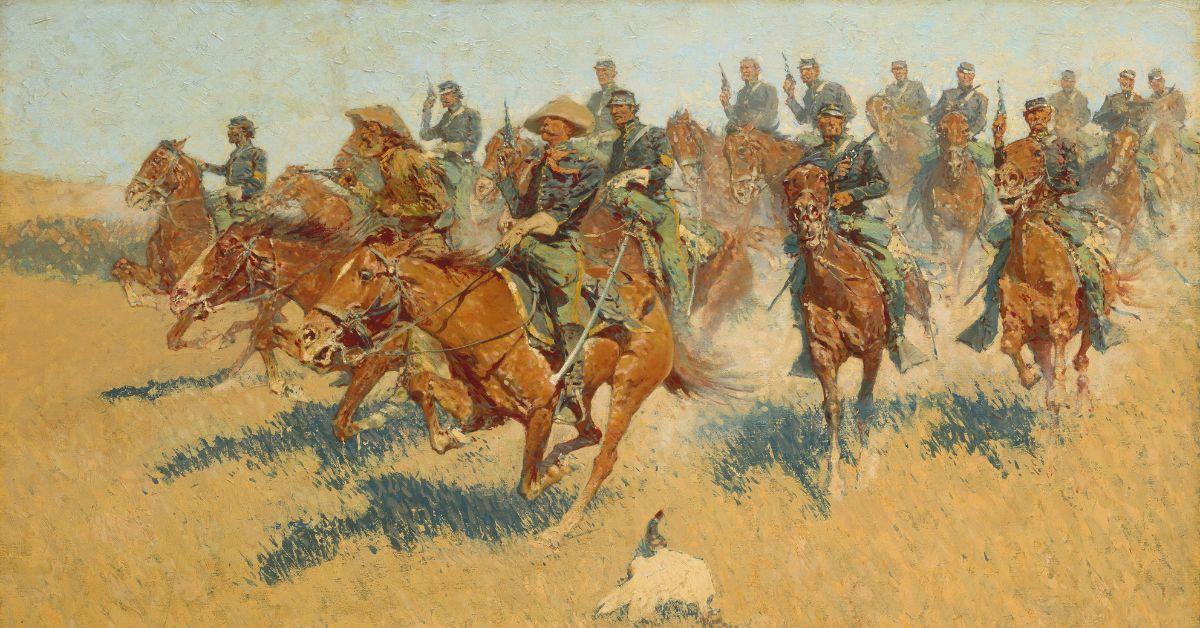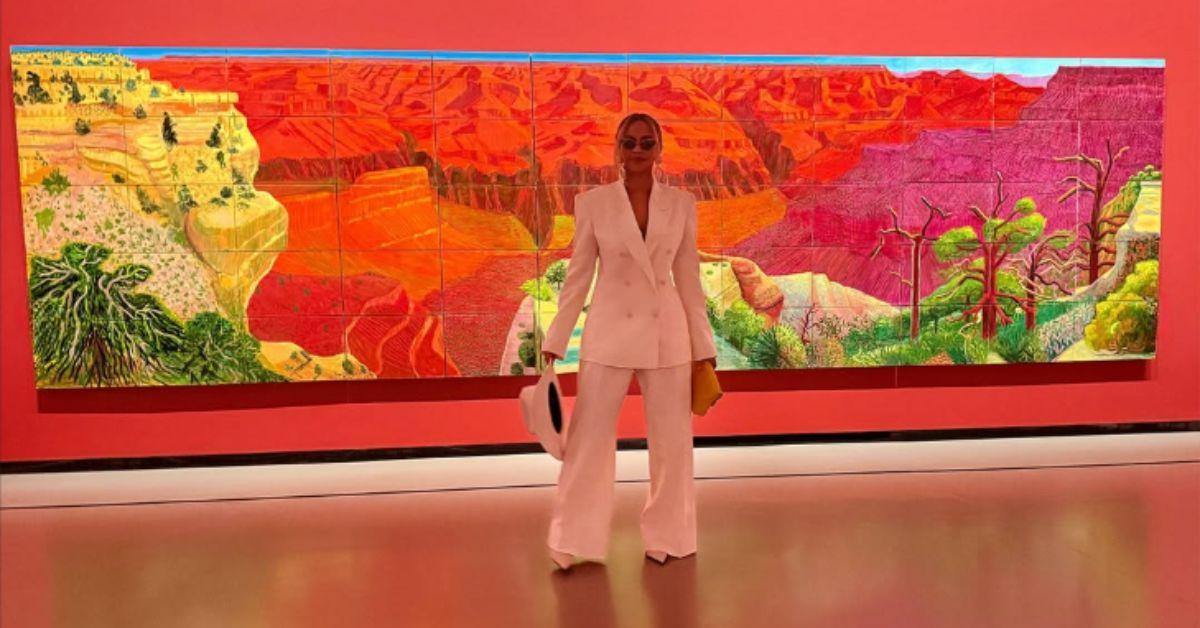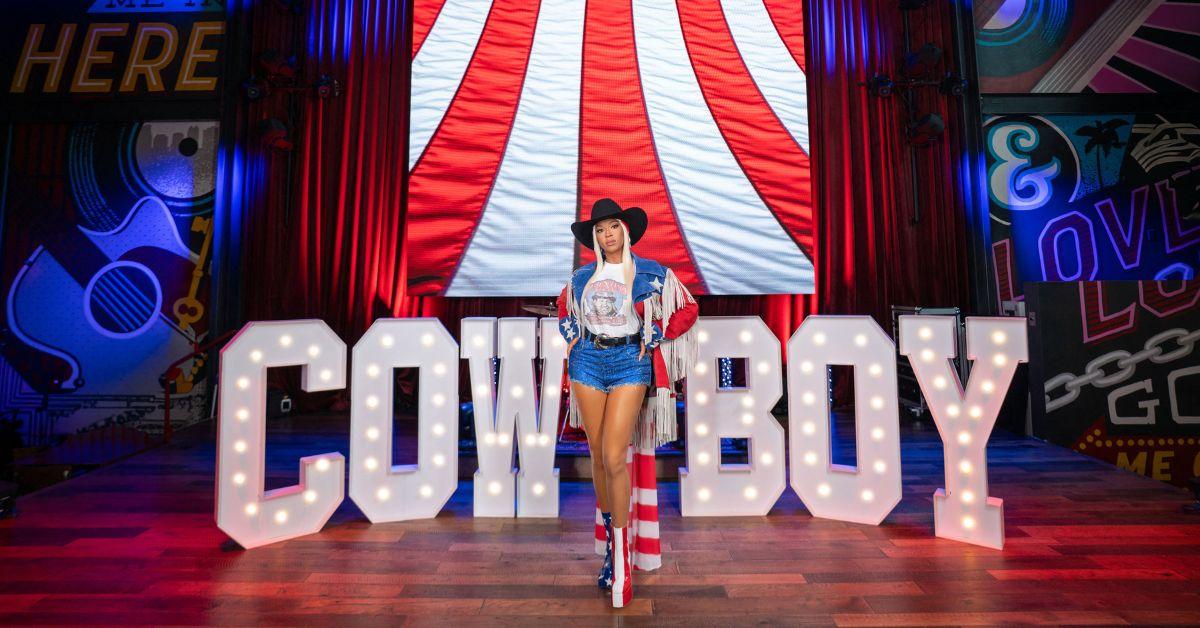 NEWS
NEWSBeyoncé Under Fire: Fans Slam Star Over Controversial 'Enemies of Peace' T-Shirt

Not everyone was pleased with Queen B!
Oct. 18 2025, Published 9:37 a.m. ET
Beyoncé has ignited a firestorm of criticism after wearing a contentious T-shirt during her Cowboy Carter tour performance in Paris. The shirt, featuring the Buffalo Soldiers, a Black U.S. Army unit active in the late 1800s and early 1900s, has spurred a heated debate about American history and its narrative.
Prominently displayed on the back of the T-shirt is a description stating, "their antagonists were the enemies of peace, order and settlement: warring Indians, bandits, cattle thieves, murderous gunmen, bootleggers, trespassers, and Mexican revolutionaries."
Following the concert, images of the shirt and clips of the performance appeared on Beyoncé's website, further amplifying the backlash.
Social media erupted with Indigenous influencers and fans expressing their discontent with Beyoncé's choice of clothing, arguing that it falsely depicts Native Americans and Mexican revolutionaries as aggressors rather than victims of American imperialism.

The Buffalo Soldiers were African American troops formed in 1866, who served in the U.S. Army’s western frontier.
What You Need to Know About the Buffalo Soldiers
The Buffalo Soldiers served in six military units formed after the Civil War in 1866. Comprised of formerly enslaved men, freemen and Black Civil War soldiers, they fought in various conflicts, including the Spanish-American War and both World Wars, until their disbandment in 1951.
As suggested on the shirt, the Buffalo Soldiers participated in several battles against Indigenous peoples as part of the U.S. Army's campaign of violence and land appropriation during the nation's westward expansion. Cale Carter, director of exhibitions at the Buffalo Soldiers National Museum in Houston, notes that while some argue the term "Buffalo Soldiers" was a tribute from Native tribes recognizing their bravery, this remains more of a legendary narrative than a fact.
Carter highlights that in recent years, the museum has sought to present a more nuanced perspective on the role the Buffalo Soldiers played in the subjugation of Indigenous peoples.
"We romanticize the Western frontier," he remarked, noting that the narrative around the Buffalo Soldiers has begun to shift. "You didn't see a change in that narrative until recently."
Michelle Tovar, the museum's director of education, echoed these sentiments, stating that the current political climate has stifled honest discussions about American history in schools, particularly in Texas.
"Right now, we are getting pushback from many school districts that restrict teaching this history," Tovar explained. "We can invite the community to learn and engage with the truth."

The star faced backlash after wearing a T-shirt during her tour.
- Kris Jenner and Corey Gamble's Relationship Nowhere Near Breaking Point After Viral Split Rumors: Source
- Controversy Erupts: Gavin Adcock Calls Out Beyoncé's 'Cowboy Carter' as Non-Country
- 'Upset' Beyoncé 'Stressed' Cowboy Carter's Ticket Sales Didn't 'Sell Out as Fast as They Have in the Past': Source
Want OK! each day? Sign up here!
Digging Deeper: Beyoncé's Artistic Motives
Beyoncé's album Act II: Cowboy Carter plays with American iconography, suggesting a reclamation of the cowboy aesthetic for Black Americans. Recognized as the first Black woman to top Billboard's country chart, she won the Grammy for Album of the Year for "Cowboy Carter."
"The Buffalo Soldiers play this major role in the Black ownership of the American West," said Tad Stoermer, a historian at Johns Hopkins University. "Beyoncé is well aware of how these images are perceived. This entire tour is steeped in a layered narrative."
However, Stoermer cautions that the Buffalo Soldiers' historical portrayal often aligns with American nationalistic myths. Alaina E. Roberts, an expert on Black and Native American history, suggests that while Beyoncé's intent may be to assert Black agency in American history, it simultaneously complicates the narrative around the violence inherent in their campaigns.
"The Buffalo Soldiers were involved in not just the settlement of the West but of genocide in a sense," she stated.

The tour is now over.
Online Outcry
Numerous Indigenous figures and critics have voiced their concerns about the shirt's language and historical implications. Indigenous news outlet indigenous.tv posed the question: "Do you think Beyoncé will apologize (or acknowledge) the shirt?" in a post that gained traction.
Critics, including TikTok user Chisom Okorafor, have highlighted the need for honesty regarding the actions of the Buffalo Soldiers, noting, "There is no 'progressive' way to reclaim America's history of empire building in the West." Okorafor further stated that Beyoncé's use of Western imagery sends a troubling message, suggesting that Black Americans can also benefit from the injustices of the American empire.
"The message promotes the idea that it's virtuous to have deeper roots in this country while neglecting Indigenous people and immigrants," she asserted.


